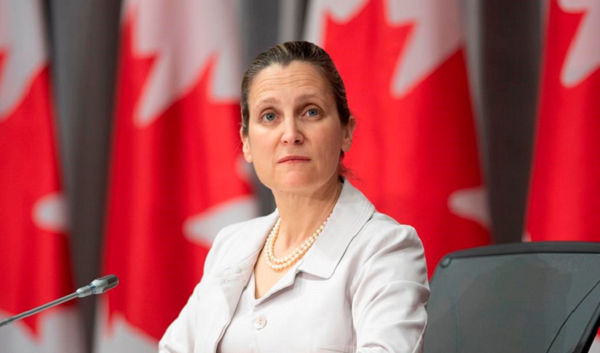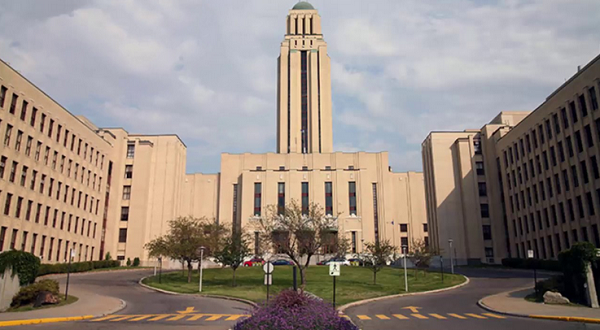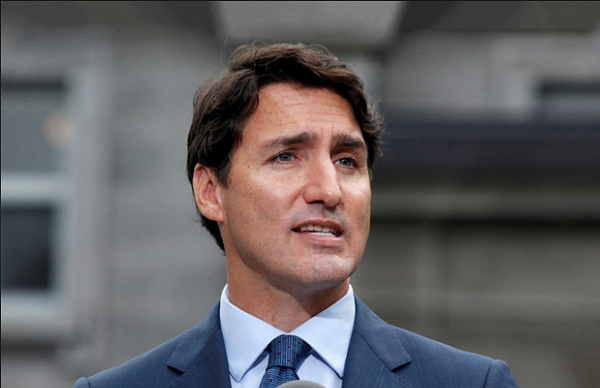Federal government budget will describe plan to pay for its spending spree, part of which is possible higher taxes for the wealthy
The big question for Tuesday’s federal budget is not “what” will be revealed but “how” to pay for it, and “when.”
A slightly stronger economy than expected and possible tax increases on wealthy Canadians or the richest corporations — that Finance Minister Chrystia Freeland has pointedly not excluded — might allow the Liberals to cover part of the cost of the multibillion-dollar measures announced in the past three weeks.
But will the promise of “fairness for every generation” — the title of the 2024 budget teased out at every chance by Prime Minister Justin Trudeau and his deputy Freeland — really persuade Millennials and Gen Z voters and their parents that the future is secure? Or does it place too big a burden on future generations?
They revealed measures to ease cost-of-living pressures on young families needing $10-a-day daycare spots in short supply and to cover school lunch and breakfast programs.
They booked $8.1 billion over the next five years for the military and $2.4 billion to boost economic growth and innovation, particularly in the AI sector.
Scotiabank economist Rebekah Young in a budget preview report late last week said all that, plus a few budget day surprises, may add up to some $31 billion over the five-year horizon, and the Liberals might get some good economic data and increased government revenues as a result that could “partially offset some of the final price tag.” But she predicted the “cumulative impact” of all that federal and provincial government spending — provinces are also pouring money into the economy — make it “premature” to expect the Bank of Canada would begin interest-rate cuts just yet.
“This budget won’t likely trigger an election but it is clearly a warm-up lap as Canadians brace for the polls within the next 12-18 months,” Young wrote. “The taps are unlikely to be turned off anytime soon.”
Freeland has defended the Liberals’ decisions to spend, telling reporters last week “We’re at really a pivotal moment for young Canadians, for … Millennials, for Gen Z,” too many of whom believe the “promise of Canada, the kind of Canada that older Canadians came of age in, it doesn’t feel like it’s working.” They can’t find an affordable home to buy, “and that’s something that we have to do something about, that requires investments,” she said, promising to be a good steward of the federal purse. “We are absolutely committed to making those investments in a fiscally responsible framework.”
That means the budget Freeland delivers Tuesday is expected to hit the fiscal bars she set out in the fall economic statement just five months ago: a federal deficit that comes in at or under $40 billion, and is 1.4 per cent of GDP, and a declining ratio of federal debt as a percentage of the overall economy.
In the fall economic statement just five months ago, Freeland said Canada had been the quickest to emerge from the depths of the pandemic with both the lowest deficit and net debt-to-GDP ratio of any G7 country.
Expect to hear more of that on Tuesday.
A senior government official told the Star the budget also expects to book the $15 billion in cuts to government spending, a goal promised last year but which seemed elusive in recent government documents tabled in Parliament.
Freeland’s November statement projected that Canada’s economy would grow slightly in 2024 by 0.4 per cent, and that 2025’s projected growth would land at 2.2 per cent.
Now, however, there are newly optimistic projections that Canada’s economy will get a boost from things like the Trans Mountain pipeline — that the Trudeau government bought in 2018 after its American operator bailed on the project. The pipeline comes on-stream next month, and by some estimates the ensuing oil exports and revenues could boost Canada’s GDP by a half-percentage point.
The fall economic statement predicted a deficit of $40 billion for the year that just ended, and a deficit for the fiscal year that just started of $38.4 billion. Those numbers could now be slightly better, some economists say.
What’s in dispute is whether more government spending at this time is the right way to go. Many bank economists and other business policy experts believe it’s not.
Robert Asselin, a former adviser to the Liberal government now with the Business Council of Canada, says the Liberals will have to defer a lot of spending into the latter years of its five-year plan to meet Freeland’s promised $40-billion deficit target this year.
“Even if they get a bit of fiscal room from a better outlook and raise taxes going forward, which I think they will,” he said, “they will need to reprofile a lot of already committed money in future years, which will in turn allow them to add significant spending in the short term without affecting the bottom line too much.”
But Asselin said the consequences are twofold: deferred spending is an admission that “they have an implementation and coherence problem” on programs like “green” investment tax credits, child care and big procurement programs, and it does add “more structural spending over the long term.
“This budget will turn out to be quite a shell game,” he said.
Trudeau’s isn’t the only government, however, that’s been opening the taps. Ontario, B.C. and Quebec have announced new spending in their recent budgets.
Kevin Page, a former parliamentary budget officer now head of the Institute of Fiscal Studies and Democracy at the University of Ottawa, said he’s not worried about the levels of government debt in Canada. Even with all the provincial and federal deficit spending, and levels of household indebtedness, “there’s no crisis” in Canada.
“There’s no short-term crisis. You can look at our debt numbers, you see at the government level, we’re Triple-A. Our credit rating is terrific. You know very few countries have Triple-A credit ratings. We pay our bills. We don’t go bankrupt at the government level. There’s really even no talk about downgrading our ratings with respect to Treasury bills and government bonds,” he said.
Page is more worried about the heavy debt loads households are carrying, and the impact of an environment where interest rates remain high. “If mortgage interest rates don’t come down,” he said, people “are really going to get squeezed” and the economy will remain “very weak.”
Page is skeptical, as is Asselin, that taxing the rich will generate the kind of revenue that the federal government needs “to solve the big fiscal holes.”
“Unfortunately, you have to tax middle-class people to generate that kind of revenue,” he said, because that’s where “the big part of the tax base is.”
That’s the one thing Freeland has ruled out, telling reporters last week that “in 2015, our commitment was we’re going to lower taxes for the middle class. We delivered on that. We remain absolutely committed to being there for hardworking middle-class Canadians and we won’t raise taxes on them.”
Page and Asselin also doubt Ottawa has much leeway to raise corporate income taxes, although it continues to work with allies on ways to tax multinational companies on their digital revenues.
“It’s hard for Canada to raise corporate income taxes because the U.S. lowered their corporate income taxes under President Trump,” said Page. “And so we have to be careful because we are so tied to the American economy that we don’t create a significant disadvantage for our business, and in the flow of capital.”
This article was first reported by The Star












